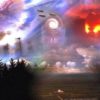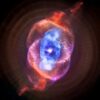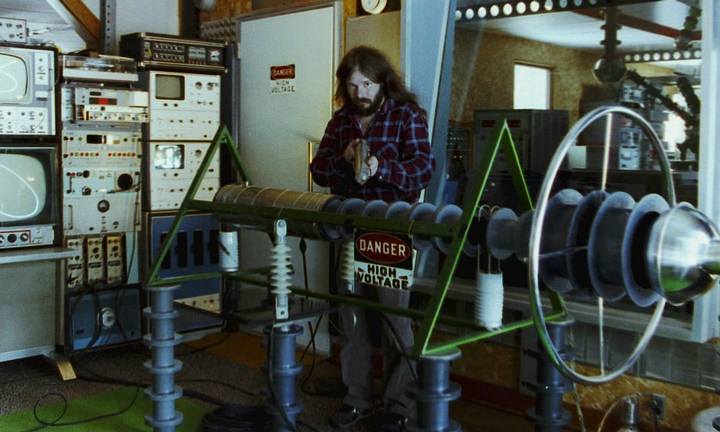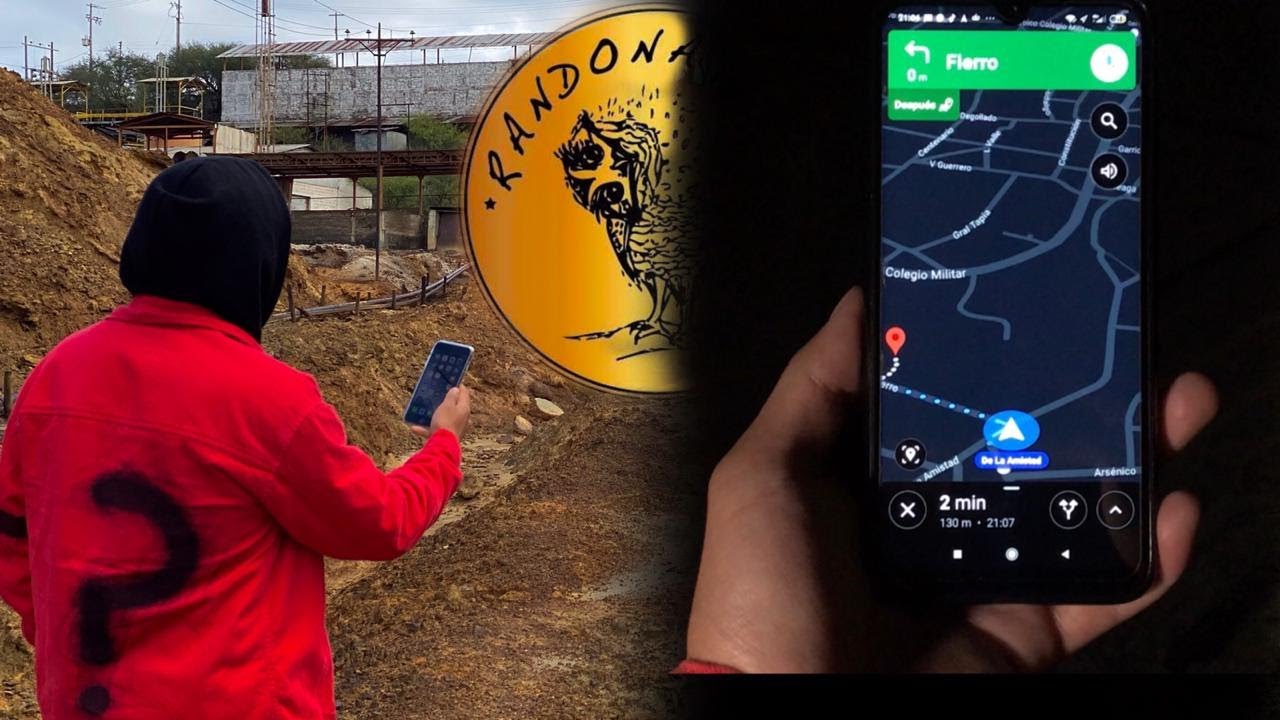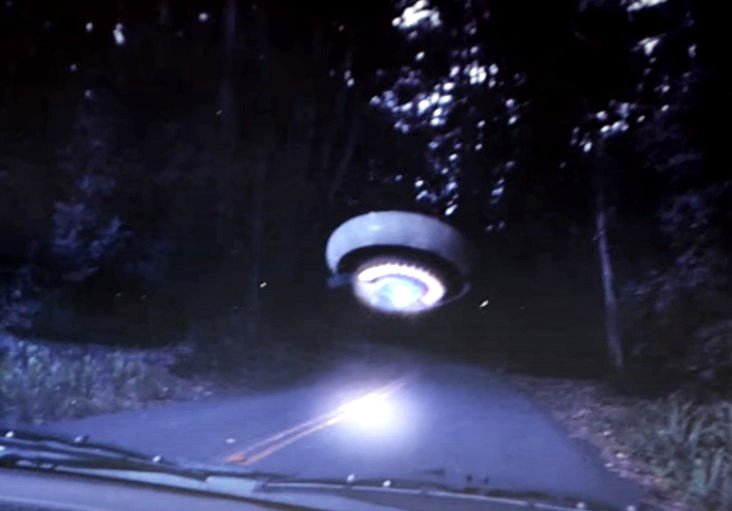A flicker of campfire light is cutting through the thick Russian night, the air heavy with the scent of pine and damp earth. An eight-year-old boy, his face half-shadowed, leans forward, eyes like polished obsidian reflecting flames that dance like distant stars. This child is unraveling the threads of a world long extinguished, a crimson planet scarred by fire and fury, where giants walked under poisoned skies. His voice, steady as a metronome counting down to apocalypse, draws in strangers: ufologists with notebooks trembling in their laps, historians sketching frantic maps on napkins. “I flew there,” he says, as if confessing a stolen kiss. “I bombed their cities from the clouds.”
That boy was Boris Kipriyanovich, born under Volgograd’s indifferent gray skies in 1996. And twenty-nine years later, in the fractured mirror of 2025, his whispers from Mars refuse to fade. They linger like cosmic radiation, seeping into our collective unease, challenging the fragile scaffold of what we call reality. What if memory isn’t just a personal archive, but a breach in the veil, a signal from the void that some souls can’t ignore?
The Prodigy in the Cradle: Whispers of an Otherworldly Dawn
In the sleepy sprawl of Volzhsky, a factory town hugging the Volga’s muddy banks, Boris entered the world on a January morning in 1996, as if the stars themselves had conspired to drop him here, unannounced. His mother, Nadezhda, a woman grounded in the rhythms of ordinary life—laundry lines snapping in the wind, the hum of Soviet-era appliances—sensed the fracture from the start. Two weeks old, and her infant son lifted his head, surveying the room with the deliberate gaze of someone who’d already charted galaxies. By four months, words tumbled from his lips, not the babble of discovery but precise declarations, as if he’d been hoarding language in some hidden recess of his mind.

Nadezhda watched, heart pounding like a war drum, as her boy at eighteen months unfolded newspapers across the kitchen table, tracing headlines with a finger that seemed too knowing. He painted then, too—not the chaotic swirls of a toddler, but canvases alive with gradations of shadow and light, ochres bleeding into indigos that evoked Martian sunsets no Earth-bound eye had witnessed. “He’s pulling from somewhere else,” she confided to neighbors over weak tea, her voice laced with that mix of awe and terror reserved for mothers who glimpse the abyss in their child’s smile. No astronomy books cluttered their shelves; his father tinkered with engines, not telescopes. Yet Boris named the moons of Jupiter as casually as one might list the days of the week—Io, Europa, Ganymede—each syllable a key turning in a lock long rusted shut.
This wasn’t mere precocity, the kind that earns a spot on talent shows or in gifted programs. It was intrusion, a seepage of the unfamiliar into the fabric of the everyday. By two, perhaps three, the boy began to speak not of trucks or teddy bears, but of orbital mechanics, of gas giants swirling in the dark, of nebulae birthing worlds in silent fury. Nadezhda froze one evening as he perched on a stool, sketching a spiral galaxy with crayon precision. “Mama,” he said, without looking up, “I used to live on Mars. There were cities of stone that touched the stars, and ships that drank the void.” The room seemed to contract, the air thickening with unspoken questions. Was this the bloom of genius, or the first crack in sanity’s eggshell? She rifled through library tomes on astronomy, her hands shaking under fluorescent lights, only to find his facts etched there, immutable as ancient runes. How does a child, untouched by star charts, map the heavens with such intimate betrayal?
The Campfire Codex: Igniting the Martian Myth
Fame, that fickle specter, slunk into Boris’s life in the summer of 2004, when Nadezhda, drawn by whispers of anomalous energies, ferried her eight-year-old to a Kosmopoisk expedition camp nestled by Lake Atalskoye in Tula’s whispering forests. This was no ordinary summer retreat; it was a nexus for the fringe, where ley lines purportedly twisted like veins of forgotten ore, and the veil between worlds thinned to gossamer. Researchers gathered here, chasing echoes of UFOs and geomagnetic whispers, their tents pitched like sentinels against the unknown.
As dusk bled into night, the group circled a fire pit, flames licking logs with prehensile hunger. Boris, round-cheeked and cap-brimmed, shed his shyness like a chrysalis. For ninety unbroken minutes, he wove a tapestry of terror and wonder, his voice a low thrum that silenced crickets and held breaths captive. He spoke of Mars not as abstraction, but as homeland—a world of megalithic spires piercing rust-hued skies, of vessels that sliced through space like obsidian blades. Flights to Phobos and Deimos, trade routes etched across asteroid belts, alliances forged with ethereal beings on Earth’s lost continents. Historians scribbled furiously; ufologists exchanged glances sharp as scalpels.
“Impossible,” one murmured, dictaphone whirring like a trapped hornet. “A child couldn’t fabricate this lattice of lore.”

Boris delved deeper, his small frame taut with the weight of epochs. Martian society, he claimed, thrived millennia ago in a harmony shattered by hubris. Races clashed—tall, ethereal engineers against brutish warriors—until nuclear tempests scoured the surface, stripping the atmosphere like flesh from bone. “I was fourteen then, or fifteen,” he said, eyes distant as if tracing contrails in memory’s smoke. “My friend and I, we rained fire from the skies, our ships humming with the screams of the dying.” Survivors burrowed into the planet’s marrow, forging subterranean realms lit by bioluminescent fungi and plasma forges. These Martians, towering at seven meters, inhaled carbon dioxide like elixir, their forms ageless—locked in perpetual youth at thirty-five, a defiance of entropy’s cruel arithmetic. Earth’s oxygen? A poison that withered them to dust. Boris’s words hung in the air, a dystopian elegy, evoking not sci-fi pulp but the grim poetry of civilizations condemned to echo.
The Lemurian Lament: A Friend’s Ghost in the Waves
Yet amid the cosmic carnage, Boris’s tale fractured into something achingly human—a dirge for a companion lost to cataclysm. He shifted then, voice cracking like tectonic plates, to Lemuria: that spectral landmass, a verdant cradle in the Pacific’s cradle, where nine-meter titans once strode emerald shores, their skin shimmering like opalescent scales. Boris, he insisted, piloted Martian craft there routinely—bartering crystalline tech for Lemurian lore, bridging worlds in a dance of interstellar commerce.
“I had a friend,” he whispered, tears carving silver trails down his cheeks, glistening in the firelight. An eight-year-old, weeping for an eon-spanning tragedy. “He was teaching me their songs, the ones that bent gravity like willow branches. Then the earth rebelled—mountains erupted in pillars of ash, the ocean rose like a vengeful god. The continent buckled, swallowed whole. A boulder, vast as a temple, crushed his sanctuary. I reached, but the waves… they claimed him.” Eight hundred thousand years prior, by his reckoning, yet the grief was raw, a wound suppurating across lifetimes. “We’ll meet again,” he murmured, fists clenched in the dirt, “in some shadowed incarnation.” The camp fell silent, the fire’s crackle a mocking applause. Here was no rehearsed monologue, but a soul’s unbidden hemorrhage—symbol of bonds that transcend flesh, mocking our illusions of isolation.
Indigo Emissaries: Harbingers of Terrestrial Twilight
Boris didn’t claim singularity; he positioned himself as vanguard in a quiet invasion. “Indigo children,” he termed them, souls incarnated with azure auras, wired for frequencies beyond the mundane hum. These were operatives dispatched to midwife Earth’s rebirth. “They’re flooding in now,” he explained to his rapt audience, “to steer us from the brink. A great shift looms—energies that will demand we shed our iron skins, our wars of possession.”
He branded himself Martian reborn, a refugee from atomic pyres, sworn to avert our replay. “I’ve seen worlds end in mushroom clouds,” he intoned in a 2017 echo of that campfire rite, his adolescent voice edged with steel. “Humanity teeters on that precipice. Cease the nuclear tango, or dance into oblivion.” It was prophecy laced with pathos, a child’s plea cloaked in cosmic indictment, resonating in an era of missile silos and proxy skirmishes.
The Guardian of Giza: Unlocking the Sphinx’s Silent Vault
Boris’s enigmas peaked with the Sphinx, that weathered sentinel on Giza’s sands, its gaze eternal as entropy. “When it yields its secret,” he foretold, “existence pivots. A latch hides behind its ear—twist it, and Martian wisdom floods forth, gifted to Egypt’s ancients in shadowed conclaves.” Vague on mechanics, insistent on impact: this trove would catapult us to stellar kinship, unraveling DNA’s knots and time’s illusions.
Thirteen years on, in 2017, muon tomography pierced the Pyramid of Cheops, unveiling a 30-meter void—a spectral chamber, contents veiled in speculation. Coincidence, or synchronicity’s sly wink? Boris’s utterance, uttered in Volzhsky’s obscurity, now shadowed headlines from Cairo to CERN. In a world starved for wonders, such alignments tease the metaphysical undercurrent, where prediction blurs into prescience.
Spectral Signatures: Where Science Brushes the Ethereal
The campfire codex propelled Boris into institutional glare. At the Russian Academy of Sciences’ Institute of Terrestrial Magnetism, researchers—skeptical yet ensnared—probed his essence. Aura imaging, that fringe alchemy of Kirlian sparks, yielded an orange blaze, vivid as harvest moons. “It screams vitality,” declared physicist Vladislav Lugovenko, “a intellect that devours horizons.” Dubious methodology, perhaps—pseudoscience’s shimmer to empiricists—but to indigo acolytes, validation: a halo confirming his otherness, a spectrum attesting to intellects unbound by terrestrial tethers.
Exile Among the Ordinary: The Prodigy’s Solitary Orbit

Genius, that double-edged comet, trailed isolation in its wake. School beckoned, first grade elided for his voracious mind, yet classrooms became coliseums. Boris excelled, devouring curricula like black holes, but chafed at rote’s chains—dismissing banal lessons, dissecting educators’ errors with surgical candor. “Why parrot when truth fractures?” he’d retort, sparking tempests among faculty.
Peers, those tribal sentinels of conformity, branded him alien: “Martian freak,” hissed in hallways, fists flying in yard skirmishes. “Black sheep draw wolves,” sighed a family ally, evoking the archetype of the seer scorned—Prometheus chained, his fire stolen yet unquenched. Childhood’s forge tempered Boris in alienation’s heat, forging empathy from exclusion’s blade.
Omens in the Ether: Premonitions from the Abyss
Nadezhda cataloged subtler portents: Boris’s spirit dimmed before calamity’s strike. As the submarine Kursk plunged into Barents oblivion in 2000, he wilted, chest heaving with unnameable dread. “Something devours below,” he gasped, prescient anguish uncoiling. Beslan’s 2004 horror echoed similarly—he bolted from schoolhouse doors, murmuring, “Blood will paint the walls.” Three hundred thirty-four souls perished, innocence shredded. Hypersensitivity, or the cosmos’s cruel telegraph? In our data-drenched age, such inklings mock our sensors, hinting at antennae tuned to tragedy’s frequency.
The Elusive Echo: Boris in the Mists of Now
Fast-forward to today: Boris Kipriyanovich, twenty-nine, dissolves into vapor trails. Whispers swirl, has he vanished with Nadezhda into governmental cloaks, sequestered in Siberian fastnesses? Western hounds trailed false scents; a Moscow scribe gleaned fragments: protected, untouchable, a state-sanctioned phantom. Alternately, he haunts the capital’s underbelly, incognito amid metro throngs, his Martian mantle shed for mortal guise.
A spectral X account bears #марсианин, three posts adrift in digital silence, 844 ghosts in tow. Clairvoyants purport telepathic missives: “Safe,” he allegedly beams, “the channel holds.” Fantasy’s flourish, or fragment of verity? The void devours details, leaving us to chase shadows in an era of surveillance saturation.
Rifts in Perception: The Believer’s Creed Versus the Cynic’s Blade

From inception, Boris’s saga split the veil: acolytes hailed revelation, detractors decried delusion. Skeptics wield Occam’s razor: juvenile reverie, seeded by adult insinuations, ballooned in a prodigy’s retentive vault. Indigo dogma? Esoteric vapor, bereft of metric rigor. His narratives fray at edges—”I forget,” he’d demur to probes—odd for past-life cartographers.
Champions counter with fervor: minutiae’s maze—astral nomenclature, galactic geometries—defies invention at eight. Grief’s authenticity scorched the air; that Lemurian lament rang no actor’s bell. Giza’s gulf? Temporal taunt, Boris’s oracle brushing archaeology’s blind spots. Globally, indigo kin proliferate: savants scripting symphonies at five, intuiting infinities. The divide mirrors our epoch—faith’s fire against reason’s frost, each illuminating the other’s blind arc.
Cosmic Remedies: Boris on the Soul’s Silent Maladies
Prodded on affliction’s roots, Boris pierced the veil: “Illness blooms from joy’s neglect, from orbits unaligned. Seek your stellar twin, cycle through ascents, cradle warmth in chilled vaults.” An octogenarian’s gnosis from a stripling’s throat—philosophy’s quiet thunder, urging harmony amid discord’s din.
Purge of the Profane: Visions of a Cleansed Cosmos
Prophetic barbs followed: twin upheavals, harbingers of renewal. “Kleptocrats and cutthroats evacuate,” he divined, “information’s tide erodes their lairs.” Enigmatic oracle—eschaton’s sieve, frequencies fatal to the fallen? For Boris, inevitability: transformation’s forge, where the unadaptable dissolve like mist at dawn.
Stellar Sorcery: Jupiter’s Forbidden Forge
Boris unveiled Martian arcana: a audacious gambit to ignite Jupiter as sibling sun, stoking solar nurseries. “Soul-luring lithics,” he detailed, “harvested warriors from ether realms.” Levitation lattices, wormhole weaves, senescence’s repeal, wonders nuked to ash. Dystopia’s allure: hubris’s harvest, a cautionary nebula for our fusion flirtations.
The Dimming Transmission: Memory’s Merciful Eclipse
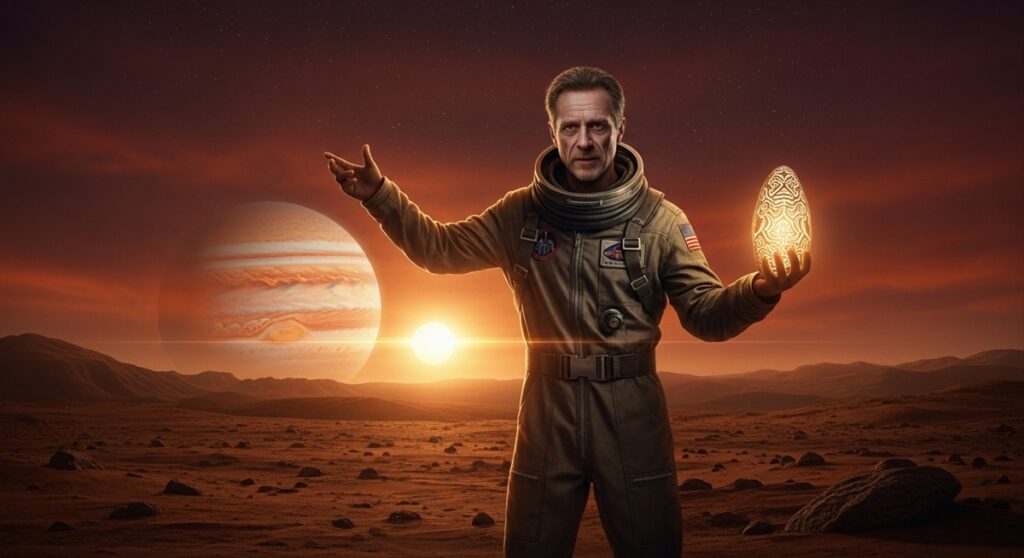
By eleven, Boris’s disclosures dwindled, the spigot sealed. “Past-life conduits constrict with years,” lore-keepers lament, a organic atrophy, recollections receding like tides. “Mission distilled,” he confided in farewell fragments: “Endure, admonish against atomic Armageddon.” Silence descended, a strategic shroud.
Veins of the Void: The Akashic Hypothesis
Fringe theorists posit conduits: an “information aquifer,” primordial and pervasive, tapped in informational deluge. Boris, they muse, surfed subconscious surges—Jung’s reservoir or Akashic ledger—mistaking glimpsed avatars for self. Reconciliation’s bridge: phenomenon persists, provenance pivots from rebirth to resonance.
Phantoms of the Pacific: Lemuria’s Submerged Saga
Lemuria, Boris’s watery requiem, stirs pseudohistory’s pot. Nineteenth-century naturalists invoked it as lemur bridge—Africa to Australasia—until plate tectonics dispatched the dream. Esoterics resurrected: Blavatsky’s theurgic tomes, Steiner’s anthroposophic scrolls, chronicling titan tribes drowned in divine ire. Boris echoed unwittingly, a Volzhsky vessel for Victorian visions. Whence the osmosis? Subconscious seepage, or signal from sunken scripts?
Crimson Recollections: Science’s Reluctant Reverberations
Curiously, Boris’s reveries graze empirical shores. NASA’s wanderers affirm Mars’s wet youth—oceans ebbing 3.5 billion years past, atmospheres flayed by solar gales. No metropolises, yet microbial murmurs; lava labyrinths lurk, radiation’s refuges for future exiles. Early 2000s prescience from a preschool savant? Imagination’s alchemy, transmuting headlines into heart-deep lore.
The Unyielding Enigma: Echoes from an Unmapped Margin
Two decades beyond that Tula inferno, Boris Kipriyanovich endures as archetype—anomalous ember in skepticism’s gale. Reincarnate aviator? Probability’s long shot. Akashic angler? Plausible poetry. Prodigal fabulist? Equally evocative. Undeniably, he ignited introspection: reincarnation’s riddle, exobiology’s edge, science’s lacunae where myth fills the fracture.
Truth, per Boris, slumbers in Giza’s stone—ear-latch levered, legacies liberated. Absent faith, marvel at psyche’s prowess: mnemonic maelstroms, intuitive infernos, worlds willed from whimsy. Martian or mundane, Boris was singularity—a child who compelled us to crane necks skyward, pondering passengers in our stellar stream.
Somewhere in today’s mosaic—Kremlin’s corridors, taiga’s throat, or exile’s expatriate haze—the man once Boriska navigates, memories molten or mausoleum-sealed. Does he dream in red dunes, or has domesticity doused the fire? And you—do past lives pulse in your veins, or is Mars mere metaphor for untapped infinities? In the quiet hours, when cities hush and stars sharpen, listen. The void might whisper back.









